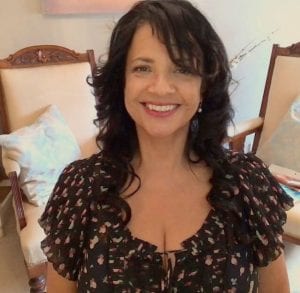Who am I to be asked to be a Panelist discussing such a topic? A fellow creative (Actress, Writer, West End Wendy in a few musicals) I’m also a qualified Psychotherapist, Counsellor and Clinical Supervisor with a client list full of fellow creatives because not only do I get the artistic world, I also inhabit it.
One of the questions I posed was, ‘Are creative minds more ‘challenging?’
My feeling is that we artists are generally more in touch with all aspects of the human experience including the darker aspects that are often considered taboo. We feel more intensely, are more sensitive and are not always afraid to be vulnerable. We express ourselves through our art, communicating in an authentic way in order to be seen and understood. This takes great courage and renders us subject to criticism. Many artists struggle to find separation between their personal identity and their identity as a performer. Even when the artist is clear about this separation, people read into our work and our work can be interpreted as our own personal view. This can lead to estrangement or social isolation which leads to the challenge
Are creative minds darker? Prone to depression?
I offered up Byron’s quote ‘We of the craft are all crazy. Some are affected by gaiety, others by melancholy, but all are more or less touched.’ Or as the working-class plaque in my mum’s factory said ‘You don’t have to be mad to work here but it helps!’
Many artists worry about losing their melancholy as it can be such an important source for their work; going to the dark places and exposing the vulnerable side may enable the artist and others to appreciate that their own darkness is part and parcel of being human and nothing to be ashamed about.
Shame cannot live when spoken about, its power diminishes in the light of words or art which is why therapy can be immensely effective.
Some believe that therapy diminishes an artist’s connection with their message. That’s like saying a writer must always write in free association with no analysis of form or structure, this may work for some but for most we need building blocks in order to drape our narrative so it falls in the correct form. Therefore, understanding yourself may not diminish rather enhance your art. The empowerment of understanding then accepting our deep, often subconscious emotions and the ability to access and express them at will is what makes and evolves an artist.
Pain, sorrow, love, hope, loss even anger can be powerful tools for expression.
Is poor mental health the price we pay for our art?
Artists must learn to become resilient – accepting of themselves rather than looking for external sources of evaluation. It’s a fine line between being a Narcissist and an Empath and it’s something we all strive toward. We must recognise that our peers, friends and families have their own morals and values and we must be conscious and clear that what we share is our own perspective. Of course, we struggle when those that we love or respect question or challenge what we create but creative people do not need to suffer.
With therapy we are often able to develop self-esteem and self-worth, the life sustaining attributes that are sometimes lacking in artists. Therapy can also help you understand your warning signs and triggers and teach you how to interpret them.
So how do you look after your creative brain?
There are many ways we can look after our creative brains. A good start is by simply being self-aware and raising our own feelgood chemicals.
- Serotonin; The mood stabiliser
- Yoga, Meditation, Breathing Walking, Exercise, Music, Dance, Art, Voice
- Dopamine; The reward Chemical
- Completing a task. Expression – talking, singing, playing, writing, painting and cooking.
- Oxytocin; The love hormone;
- Relaxing with friends, hugs, playing with the dog. Community – support, conversation, collaboration, positive feedback
- Endorphin; The pain killer.
- Exercise (I know, but the brain loves it!) Laughter, watch a comedy. Essential oils, Dark Chocolate (Yum!)
Learning to recognise your warning signs and triggers and listening to them is key. If you’re stuck maybe therapy can help you break negative patterns of behaviour. Having a creative mind doesn’t mean you have to suffer and if what you’ve been doing so far isn’t working then maybe it’s time for a change.
So, resilience, conviction, kindness and awareness are the key elements to looking after your creative brain. You know your art better than anyone, it’s precious and has meaning.
As a creative, David Bowie’s quote resonates with me.
‘Never work for other people at what you do. Always remember that the reason that you initially started working was that there was something inside yourself that you felt that if you could manifest it in some way, you would understand more about yourself or how you coexist with the rest of society. I think it’s terribly dangerous for an artist to fulfil other people’s expectations. I think they generally produce their worst work when they do that.
Beverley Hills, London, September 2020
To find out more about Beverley click here


